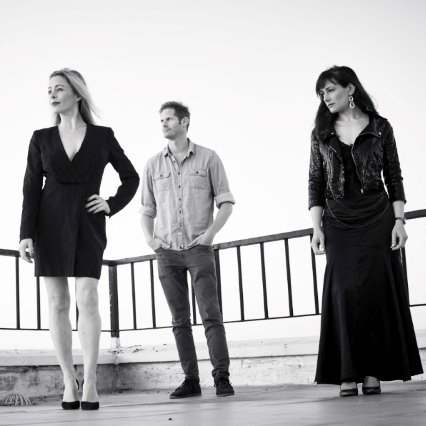
News

Connecting to Yiddish culture through music
MOIRA SCHNEIDER
Levy’s earliest performance, singing in Ashkenazi Jewry’s ancient tongue, was as an eight-year-old. She sang My Yiddishe Mama at the Cape Town City Hall as part of the Herzlia Constantia school choir. “I think that was the first song ever to move me,” she recalls, “and I have remembered it throughout my life.”
But she knew nothing of her Yiddish heritage during her school years. Then in 2009, at the age of 26, Levy was invited to participate in the Yiddish Song Festival. It was there that she found her identity.
“Suddenly I came across these exquisite songs that rocked my world, and so my search began.
“These are songs everyone can relate to. I think that the language understands human nature more than any other. From the first rehearsal, I just immersed myself in the history, asking questions such as: How did we come here? Why does this language not exist anymore? Without that song festival, I wouldn’t know about this history of mine.
“What I noticed while performing at the festival was, there was nobody from my generation in the audience. I wondered why, and what I could do to keep our heritage alive. For instance, we keep it alive by practising what I call the ‘shtetl swag’, the way we talk. It’s about the fact that we have gefilte fish and chopped herring on a Friday night, for example,” she says.
What immediately drew Levy to Yiddish music was the notion that, although the musicians of the shtetl were seen as secular, one could hear a deep spirituality in the songs, which reflected the community’s deep connection to their Judaism.
“I felt I had found my place,” Levy says. “I discovered all these incredible actors and actresses of the time. I started talking to people about my interest in Yiddish culture and one day, got a phone call from Aron Swartz. He had been told by (Chazan) Choni G, a friend of mine, that I was learning some Yiddish songs and was into it.”
Swartz told her that a woman from Denmark, who was meant to be singing Yiddish songs at the Voorkamerfest, a music festival in the West Coast town of Darling, was unable to secure a visa. He asked if she could do so.
“I replied: ‘Yes! Of course I can’ – without having a repertoire. It was terrifying!” she recalls.
“Within two weeks, I got hold of pianist Robin Cohen. We put together some songs and had a wonderful weekend playing mainly to non-Jews.”
Levy was then invited by the Jewish Board of Deputies to perform at the celebration of the 175-year presence of the Jews in this country some 18 months ago.
“It’s just been such an incredible journey,” she reflects.
This year, Levy made history by being the first woman to sing at Yom Hashoah when she performed Mir Lebn Eybik (We Will Endure), a song written in the Vilna Ghetto by Leib Rosenthal, who perished in an Estonian camp. His family fled to South Africa.
Last year, she was awarded a full scholarship to study Yiddish for six weeks at the renowned Yivo Institute for Jewish Research in New York.
“To be there and to be amongst Jews and non-Jews from all over the world, with such an eclectic bunch of people, was an incredible experience,” she enthuses, “and all of us were there with the same calling.
“Some of them had a PhD or a master’s qualification on a Jewish-related topic, leading them to discover their heritage and connection to Yiddish. They felt they needed more of this delicious language.
“I think people have a Yiddishe neshama. It’s something that just called me and I can’t refuse it. I’m at my happiest when I sing these songs.”
And her dream? To be able to compose her own Yiddish songs.
With advocates like Levy around, it seems a tad premature to dismiss Mama Loshen (the mother tongue) as a dying language.
• Yid Dish will perform at the Kalk Bay Theatre on Thursday, February 8 at 20:30




